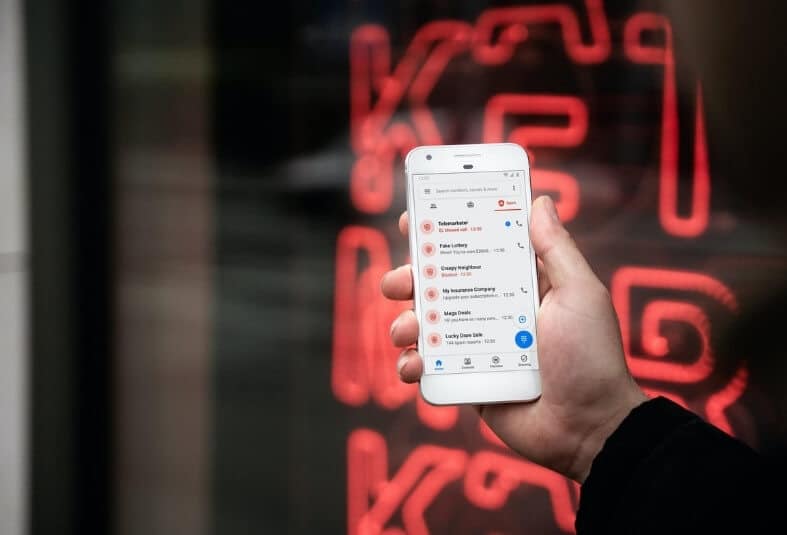Investment scammers conned Australians out of over $500 million last year, and their busiest season is about to take off. You may come across all the scammers; the Australian Taxation Office is the most commonly impersonated government department. Scammers usually start their calls leading up to EOFY and straight after.
According to the ATO, impersonators will often call, accusing you of not paying your taxes or that you’ve paid too much tax.
Automated ‘bot calls’ that appear to come from a legitimate ATO phone number have allowed the scammers to increase their reach dramatically. Scammers are not new, but they are becoming more sophisticated in their approach. Often, they can threaten you’ll be getting a large fine or even be arrested if you don’t pay additional tax, which is the first red flag. The ATO will never call out of the blue and threaten immediate arrest.
According to the Australian Competition & Consumer Commission’s scam watch report, recent year’s losses were 44 per cent higher than from 2018, proving that the impact of scams on the public is worsening.
Of the near $500m lost to scammers, $86m went to dodgy investment scams. Cold calls contacted most victims, but investment schemes promoted on internet trading forums and pop-up ads are becoming more popular.
Here are 8 signs you’re talking to a scammer:
- Odd-looking phone number
- Delayed greeting
- The caller can’t communicate in English well
- Caller says there’s a problem with an unknown account
- Ask to speak to a supervisor or manager, and it doesn’t seem right
- If they tell you you have to identify yourself
- Ask for information in an email
- Watch out for bots
1. Odd-looking phone number
Be highly suspicious if a number comes from a personal mobile number you don’t know or a hidden caller ID number.
2. Delayed greeting
If you answer but the person on the other end doesn’t respond right away, chances are they used an automatic dialer. Tax Scammers will be calling hundreds of numbers per day and have many lines on call, just waiting for one to respond. If you hear clicking noises or they take a while to get to the phone, don’t hesitate to hang up.
3. The caller can’t communicate in English well
It’s normal for large companies to use foreign call centres; however, when they do, their employees are very good at English, and while they may have an accent, they will be trained to know what to say in understandable English.
4. Caller says there’s a problem with an unknown account
If they call and say there is a problem with an account but haven’t asked you to provide your private security details or access codes; it’s a sign they are not from that company.
5. Ask to speak to a supervisor or manager, and it doesn’t seem right
If you feel unsure about the person you are speaking to, you have the right to talk to a supervisor or manager. If the person you’re speaking with starts to seem off, and you question the nature of the call, the so-called representative becomes irritable or even belligerent. It’s an intimidation tactic and a major red flag.
6. If they tell you you have to identify yourself
No, you don’t. That person called you, so they should know who you are. If they tell you to provide personal data so the conversation can continue – especially your name, Medicare number, address and account numbers it may be a bad sign. Almost all banks, government departments and financial institutions will have security questions on file. They will have provided you with PINs or security text or email clarification, so you won’t have to give personal information over the phone.
If you’re concerned about the account that person mentioned, hang up and call the company to find out if there’s a problem – and to report the scam.
7. Ask for information in an email
If you suspect the information on the phone isn’t legitimate, you can ask them to email you on your email provided in the system. If you get an email, it will be with an official logo and contact numbers of the company you can trace. If they don’t have an email on file, or the email isn’t with a professional email domain or signature logo, it’s a red flag.
8. Watch out for bots
When you’re on the phone, you may think that you’re discussing matters with a human – mainly when they’re using your name and the sentence structure is natural. Listen closely for responses that follow a precise pattern. If you suspect it’s a bot, use a nonsense word or sentence like “I’d like a pickle” and see if they react. A human will, a bot won’t.
It always pays to be vigilant and aware of the calls that come your way, so pay attention and keep your guard up, especially around tax time and never pay anything to the ATO unless you’ve received an official statement or bill from the ATO.
If you’re unsure about money owed to the ATO or have had calls about a debt owed to the ATO, give us a call to further look into the issue. Our tax advisors located in Melbourne, Sydney, Adelaide, Perth and Brisbane are happy to help you understand and navigate the end of the financial year for your business and will be able to help you with any legitimate tax queries. Feel free to get in touch with us on 1300 454 174 or send us an email at info@carbongroup.com.au.





















